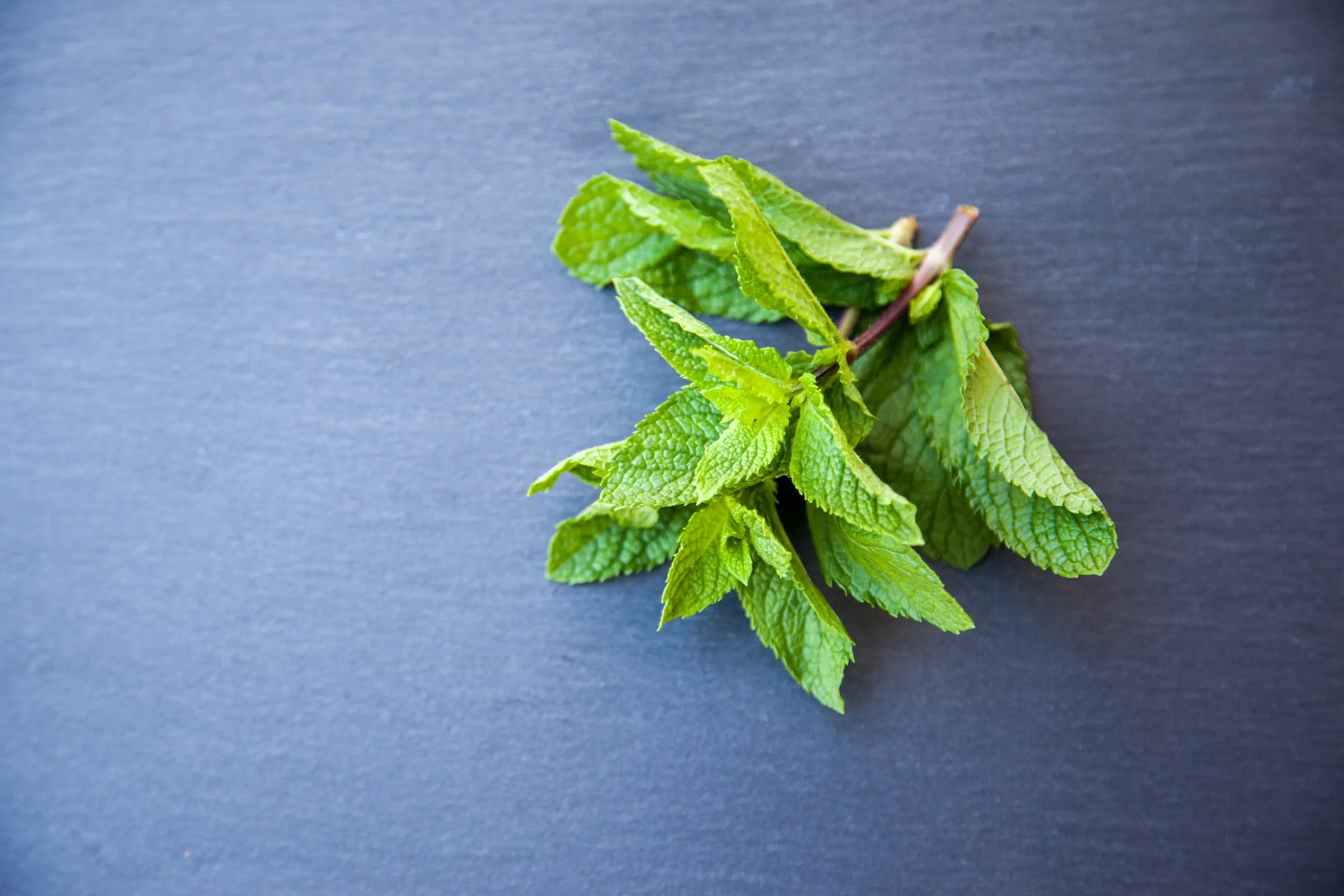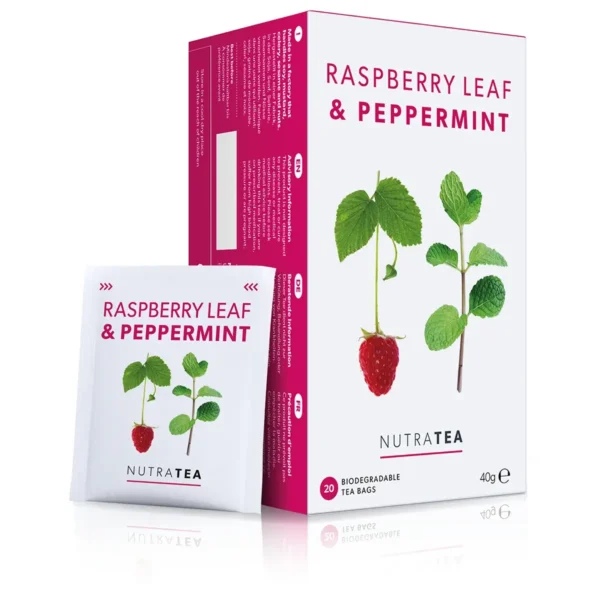NutraBlog
What Are the Health Benefits of Peppermint Tea?

From supporting your digestion to freshening your breath, there are many reasons to love peppermint tea. Discover the health benefits of peppermint tea in our latest blog post.
—
A refreshing, uplifting herbal tea, peppermint tea has been a favourite in many countries around the world for centuries.
Often drunk after a meal to freshen our breath and give our digestion a boost, this minty herbal tea is a delicious and naturally sweet treat to enjoy at any time of day.
However, reasons to drink peppermint tea go well beyond its fresh flavour. This herb is also known for its many health benefits. Most famously used to settle our digestion, peppermint tea can be used for everything from easing tension headaches to relieving menstrual cramps.
In this blog post, we’ll take a closer look at peppermint tea and discuss its various benefits for our health and wellbeing.
What Is Peppermint Tea?
As the name suggests, peppermint tea is made from the leaves of the peppermint plant or Mentha x piperita.
Peppermint is one of many species in the mint family. It’s a cross between two other types of mint – water mint and spearmint – and is used in many different products for its scent and flavour.
This type of mint is also prized for its health benefits and has been used in herbal medicine for many centuries. Originally cultivated by the ancient Egyptians, peppermint was also valued by the ancient Romans and Greeks.
Despite this long history of use, it wasn’t until the 18th century that peppermint became popular in the UK, even though it is one of our native plants. It subsequently found its way to the USA in the early 19th century and remains popular across the world today.
Many of the health benefits of peppermint come from its menthol content. Menthol is an organic compound that gives peppermint its scent and flavour. It is an antioxidant, has antiseptic properties, and can even act as a natural anaesthetic.
Peppermint tea can be made with either fresh or dried leaves from the peppermint plant. The dried version is more potent, with a stronger flavour, because it has less water content than the fresh leaves.
Of course, peppermint can also be used with other herbs in a herbal tea blend. Its refreshing flavour makes it one of the most popular herbal teas.
The Health Benefits of Peppermint Tea
We always like it when something delicious also turns out to be good for you. Peppermint tea is fantastic in this regard – it’s full of flavour and packed with health benefits too. Here are a few of the reasons we love this herb so much:
1. Eases Digestive Issues
The best-known benefit of peppermint tea is easing digestive issues. Since ancient times, this herb has been used as a natural remedy for indigestion, bloating, and gas.
Peppermint may also help to relieve the symptoms of irritable bowel syndrome (IBS). And it can help to soothe nausea too, including in people undergoing chemotherapy treatments.
2. Soothes Menstrual Cramps
As a natural painkiller, the menthol in peppermint may help to ease painful menstrual cramps and relieve some of the other symptoms of PMS, including nausea and diarrhoea.
This is partly because menthol has anti-inflammatory properties and partly because it helps to prevent muscle contractions, which can ease the severity of cramps.
3. Relieves Headaches
Peppermint’s painkilling benefits can also help when we’re experiencing tension headaches or migraines. It helps to increase blood flow and has a cooling effect on the body, both of which can help to relieve pain and ease certain types of headaches.
4. Calms a Cough
When you have a cough, peppermint can help to loosen mucous and clear your airways. It acts as an expectorant, meaning it is effective in helping you cough up phlegm. This makes peppermint an especially good choice if you have a wet, chesty cough.
5. Clears the Sinuses
As an expectorant, peppermint is also good for clearing your sinuses and easing congestion. The menthol in this herb is a natural decongestant, helping to open your airways and relieve swollen nasal passages so that you can breathe more easily.
6. Freshens Your Breath
We often associate minty scents with fresh breath. However, it isn’t just the pleasant smell of peppermint that makes it a favourite for preventing bad breath.
This herb is also a natural antibacterial, helping to fight off the bacteria that can cause smelly breath, plaque, and tooth decay. Plus, the anaesthetic properties of peppermint can help soothe toothache and sensitive gums.
How to Drink Peppermint Tea
Peppermint tea is a delicious choice at any time of day. We especially like a cup after a meal as a palate cleanser that also supports our digestive system. As it is naturally caffeine-free, peppermint tea is also a good choice before bed. Peppermint is also a popular tea to drink during pregnancy because it helps to ease gas, nausea, and indigestion. Some people advise avoiding it during the first trimester, but there are no reported harmful effects from drinking a cup or two a day during pregnancy.
You can make peppermint tea from the fresh leaves if you happen to have some growing in your garden. Be careful of your identification – there are a lot of different plants in the mint family.
You can also use dried peppermint to make tea. This is our preferred method because the flavour is more potent. It also makes it easier to combine with other herbs – we like to use peppermint with red raspberry leaf to make a tea that is perfect for the third trimester of pregnancy, as well as for anyone struggling with PMS.

